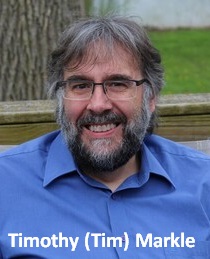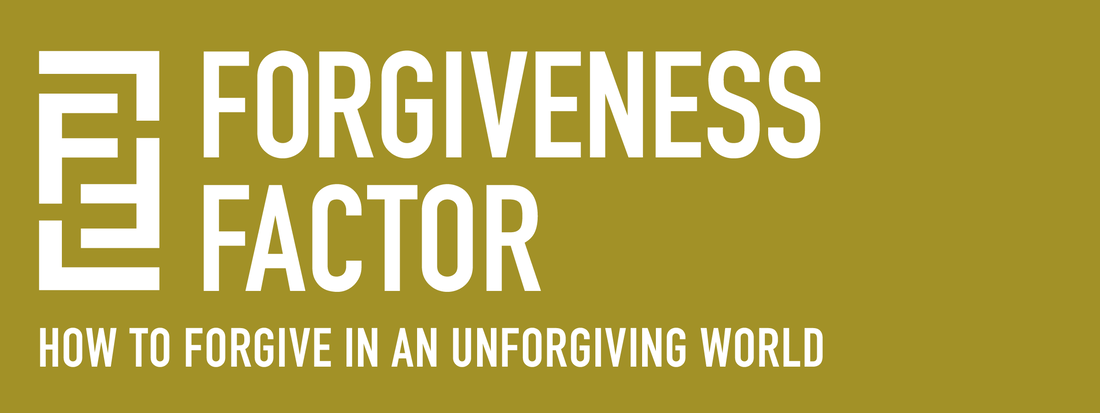Archive for January, 2021
Which of the 20 units of your Process Model do you think hinders people the most?
I think a difficult unit is the decision to go ahead and forgive. Because forgiveness may be new to people, they have a certain and understandable apprehension about starting what is unfamiliar to them. Also, the idea of giving a gift of some kind to the one who was unjust can sound unfair and unreasonable. Yet, forgiveness, being centered in its deepest essence in mercy and love toward the other, is about such gift-giving.
Thank you for answering my question about getting to know what forgiveness is. I have another question for you: Is it possible for most people to go through the forgiveness process (your 20-unit Process Model) in a genuine way and to the full extent of forgiving?
I again, will refer to Aristotle and his wisdom about becoming perfected in the moral virtues. According to Aristotle’s observations, all people have the potential for perfection in the moral virtues, but we do not reach that highest level of perfection because we are imperfect beings. This actually keeps life interesting. As we strive to get better in forgiveness or justice or love, we always have room for more improvement. Yes, we do get better with practice, but no matter what our age or experience, we can look forward to more insights, surprises, and growth.
Is it possible for most people to understand what forgiveness actually is? I mean, can the vast majority of people come to an accurate understanding of what forgiveness is, without distortion?
I adhere to the philosophy of Aristotelian realism. This philosophy assumes that people can use their rational faculties to understand the world. For example, we can distinguish horses from cats because both are real and so are accessible to our reason. Although much more abstract than horses or cats, forgiveness is accessible to us as are all of the moral virtues such as justice or patience. Yet, it takes effort and practice to truly and deeply know, for example, how forgiveness differs from the other virtues (forgiveness is offering goodness specifically to others who have been unjust). In other words, without the persistent effort to know what forgiveness is, people could confuse it with “just letting the unfairness go” or abandoning justice. Yet, with the persistent effort, yes, most people should be able to understand what forgiveness is.
Podcast Series Focuses on How to Forgive
Tim Markle, a contributing writer and speaker for the International Forgiveness Institute (IFI), has teamed up with Stoughton Health to create a series of informational podcasts on the basics of forgiveness.
Markle is a multi-talented and versatile professional who says his two major aspirations in life are helping individuals with developmental disabilities and educating people about the benefits of forgiveness. The podcasts are part of the hospital’s Stoughton Health Talk series hosted by Melanie Cole. The ever-expanding program lineup featuring Markle includes:
- Forgiving Yourself ( 10 min. 42 sec.) – “You’d be surprised at the number of people who come to my course on forgiveness and realize that the person that they have the most resentment against is themselves.” Markle says. “This is something so many people are struggling with.”
- Swimming in Unforgiveness (17 min. 58 sec.) – Markle discusses resentment, anger, and forgiveness, and how the world encourages us to deal with it as opposed to how we should deal with it.
- Preparing to Forgive (9 min. 20 sec.) – “One of the core parts of forgiving is that there has been a hurt, somebody has violated our concept of right or wrong. They have hurt us. There is an actual injury that has been done” according to Markle. “One of the steps in forgiving is admitting that and acknowledging it. And then, looking at how has that hurt changed my life?”
- Doing the Work of Forgiveness (10 min. 54 sec.) – “How do you actually go about forgiving someone?” Markle asks. “Using Dr. Enright’s forgiveness model, we talk about the path you can take and actions you make to really forgive.”
- The Art of Forgiveness (11 min. 15 sec.) Research has shown that by forgiving someone who has deeply hurt you, you gain positive health benefits by letting go of resentment and the urge to seek revenge. In this podcast, Markle describes how forgiveness creates a higher quality of life, a healthier body, and a more positive attitude.
The Stoughton Health Talk Podcast series reflects the growing popularity of podcasts. According to Edison Research and Triton Digital, more than 104 million Americans listen to podcasts on at least a monthly basis. Stoughton Health is one of more than 100 leading hospitals and health systems using the DoctorPodcasting production system. The facility is located about 20 miles east of Madison, WI.
For the past 11 years, Markle has been an Outreach Specialist at the University of Wisconsin-Madison Waisman Center. His current roles there include: 1) Director of the Southern Regional Center for Children and Youth with Special Health Care Needs; 2) Family Discipline Coordinator for the WIsconsin Maternal and Child Health Leadership Education in Neurodevelopmental and Related Disabilities–the WI LEND Program; and, 3) Senior Outreach Specialist with the Youth Health Transition Initiative and Genetic Systems Integration Hub.
In those various capacities, Markle works to improve the lives of children and adults with developmental disabilities and neurodegenerative diseases, some of life’s most challenging conditions. He also develops curriculum for a variety of audiences, provides training for both children and adults, and is a prolific speaker.
Markle has a Masters in Counseling (MC) from John Carroll University (a Jesuit Catholic University in Cleveland, OH) and a Master of Arts in Christian Studies (MACS) from Trinity Evangelical Divinity School north of Chicago. He also studied at Bowling Green State University (Bowling Green, OH), where he earned a Bachelor of Arts in Psychology with a minor in Philosophy.
As the capstone project for his MACS degree, Markle developed a six-week course that focused on how to forgive and why forgiveness is indispensable for dealing with anger, depression, anxiety and trauma. The course is based on the ground-breaking work of Dr. Robert Enright, co-founder of the IFI. Stoughton Health, along with two local churches, has thus far hosted five sessions of the course. Markle is also the founder of a forgiveness education organization called Forgiveness Factor.
Learn more:
- Access all of Stoughton Health’s 68 podcasts covering a variety of health and wellness topics.
- Read Tim Markle’s autobiography.
- Contact Markle through his Contact Page.
2020: A Year We Will Always Remember
Do you remember 2019, the year before last year? It was a year plagued by worldwide unrest, hurricanes, and societal conflicts. When it mercifully sputtered to its end, people sang and drank and danced happily on its grave, assured that 2020 surely would be a much better year.
For a few months, it was. But then, thanks primarily to what was first labeled a “miniscule coronavirus” discovered in a far-away land, 2020 turned out to be much worse for many millions of people around the world. It was one of the most challenging years in modern history—a year to forget, but one we will always remember.
Yet, as a forgiveness researcher and co-founder of the International Forgiveness Institute (IFI), I am proud to report that despite its many challenges, 2020 turned out to be our most productive year ever since I began studying forgiveness three decades ago.
HERE ARE JUST A FEW OF OUR NOTABLE ACCOMPLISHMENTS FOR 2020:
1) We completed and had published 11 significant scientific research projects. I was able to team up with a different group of uniquely-qualified specialists for each of those projects. Covering a wide range of cultural diversity, and encompassing studies in seven countries with both adult and child participants, those studies included:
- Development and implementation of a totally new forgiveness tool—The Enright Group Forgiveness Inventory–that has important implications for world peace. As part of that project, we tested the tool in China, Taiwan, Slovenia, and the U.S. It will soon be available on the IFI website at no cost to researchers.
- Completion of three “peace education initiatives” in China, Iran, and the U.S. that are designed to inspire and engage educators, students, and community leaders. I continue projects like these because I genuinely believe that forgiveness is the missing piece to the peace puzzle and that the IFI must continue its mission of “Healing Hearts, Building Peace.”
- Seven other projects documenting how Forgiveness Therapy can positively impact the homeless and those in prison, help prevent bullying (Spain), assist female acid attack victims in Pakistan (a significant social issue there), and others.
+ See all the 2020 IFI Research Projects +
2) As recognition and adoption of our Forgiveness Therapy interventions grows, I was able to develop and deliver more than a dozen targeted forgiveness presentations in the U.S. as well as in Scotland (Edinburgh), Northern Ireland (Belfast), and Slovakia (Bratislava) during 2020. Audiences included cancer treatment specialists, pediatricians, oncologists, and other medical specialists; prison maximum security staff and inmates; school administrators and teachers; and university faculty, research associates, and students.
+ See the full list of 2020 Forgiveness Presentations +
3) Responding to frequent requests from national and international news reporters, I was able to complete media interviews, podcasts and video productions in Spain, Germany, Italy, Israel, Canada and a variety of U.S. locations. One of those podcasts—hosted and broadcast by Dr. Alexandra Miller, a popular family relations psychologist—was downloaded by individuals in 225 US cities and 22 foreign countries in just the first three weeks after it was recorded.
+ See the entire list of 2020 Media Engagements +
4) In addition to all that activity, I managed to continue our promotion of the immeasurable benefits of forgiveness and Forgiveness Therapy by:
- Authoring 12 new forgiveness-related blogs for Psychology Today;
- Originating 12 additional blogs for “Our Forgiveness Blog” on the IFI website; and,
- Providing written responses on our website for 208 “Ask Dr. Forgiveness” questions.
Yes, 2020 was a ground-breaking, record-setting year for the science of forgiveness, for the International Forgiveness Institute and for me personally. At the same time, the pandemic has helped us realize that life is too short to be unhappy. Living in the moment matters. Being there for the people you love matters. And it gives us the chance to add to our Unfolding Love Story.
There is one sure way to get rid of your unhappiness: Make this year the one when you learn to forgive. If you live a forgiving life, I guarantee it will be a happier and healthier life.
Robert





